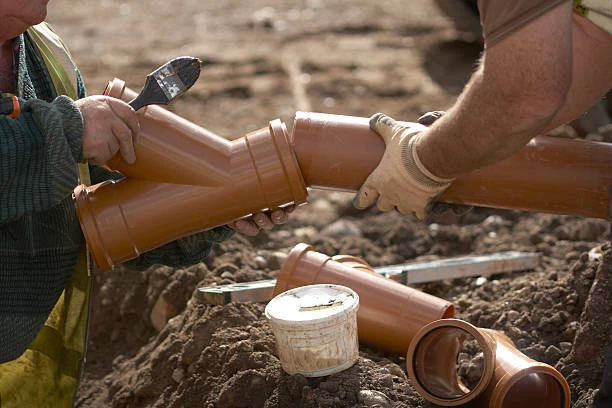Introduction: The Role of Valves in Irrigation Systems
When it comes to maintaining lush, green plants and grass, an efficient irrigation system is crucial. Among the various components of an irrigation setup, valves play a pivotal role in controlling the flow of water. They allow you to regulate the amount of water delivered to different areas of your garden, ensuring that every plant gets the precise amount it needs. In this article, we’ll focus on the best valves for PVC pipes, highlighting their features and benefits to help you create a well-watered oasis.

Types of Valves for PVC Pipes
Before diving into our top picks, let’s discuss the different types of valves commonly used in PVC pipe irrigation systems. Gate valves, globe valves, ball valves, and solenoid valves are among the most popular. Each type has its unique characteristics and applications, making it essential to choose the right one for your specific needs.
Gate Valves: A Traditional Choice
Gate valves are a traditional option for controlling water flow in PVC pipes. They work by lifting or lowering a gate that blocks the flow path. Gate valves are ideal for full or partial flow control in larger diameter pipes and are known for their durability and longevity. However, they may not be the best choice for frequent on/off applications due to their slower operation.
Globe Valves: Precise Flow Control
Globe valves offer more precise flow control than gate valves. They use a disc-shaped closure element that moves perpendicular to the flow path. Globe valves are excellent for throttling, meaning they can be adjusted to control the flow rate accurately. While they are typically used in smaller diameter pipes, globe valves are perfect for applications requiring fine-tuned water distribution.
Ball Valves: Quick and Easy Operation
Ball valves are a popular choice for irrigation systems due to their quick and easy operation. They use a hollow, perforated ball that rotates 90 degrees to open or close the flow path. Ball valves provide excellent flow characteristics and are well-suited for applications where frequent opening and closing are required. They are also relatively lightweight and easy to install, making them a great option for DIY irrigation projects.
Solenoid Valves: Automated Irrigation Solutions
For those looking to automate their irrigation systems, solenoid valves are the way to go. These valves use an electromagnetic coil to open or close the flow path, allowing for precise timing and control of water delivery. Solenoid valves can be integrated with timers, sensors, and controllers to create a fully automated irrigation system. They are compact, reliable, and ideal for applications requiring precise watering schedules.
Choosing the Right Valve for Your Irrigation System
When selecting the best valve for your PVC pipes irrigation system, consider factors such as pipe diameter, flow rate requirements, and the need for automation. Gate valves may be suitable for larger diameter pipes and less frequent flow adjustments, while globe valves offer more precise control in smaller pipes. Ball valves provide a balance of ease of use and flow control, while solenoid valves are essential for automated systems.
Installation Tips for PVC Pipes
Installing valves in your PVC pipe irrigation system is relatively straightforward but requires attention to detail. Ensure that you have the correct size and type of valve for your pipe diameter. Use appropriate primer and cement to create a leak-proof connection. Always follow the manufacturer’s instructions for installation and testing to ensure that your valve operates correctly.
PVC pipes Maintenance and Troubleshooting
Regular maintenance of your PVC pipes valves is crucial to ensure long-term performance. Check for leaks, corrosion, and wear and replace worn-out parts as needed. If you encounter issues with valve operation, inspect the valve for debris or damage and clean or repair as necessary. Proper maintenance will keep your irrigation system running smoothly and efficiently.
FAQ: Common Questions About PVC Pipes
Q: Can I use the same type of valve for both potable and non-potable water applications?
A: While some valves are suitable for both potable and non-potable water, it’s always best to check the manufacturer’s specifications. Valves used in potable water systems must meet specific health and safety standards.
Q: How often should I inspect and maintain my irrigation system valves?
A: It’s recommended to inspect your irrigation system valves at least once a season. Look for signs of wear, leaks, and debris build-up. Regular maintenance will help prevent costly repairs and ensure the longevity of your system.